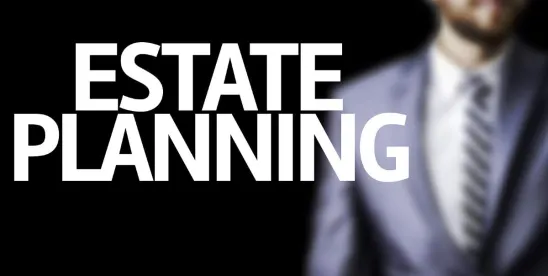In addition to the federal estate tax, which may be levied upon a decedent’s estate, New York imposes a separate state estate tax regime. Generally a decedent’s estate is subject to the New York State estate tax if such decedent dies a resident of New York, or if the decedent dies a non-resident but leaves behind real or tangible property physically present in the state.
Before legislation was passed in 2014, New York had a one-million-dollar exclusion amount (that is, estates would only be liable for State estate tax if the New York taxable estate was greater than one million dollars). If an estate was subject to the New York estate tax, the tax would only be charged against the portion of the estate exceeding the exclusion amount—meaning that before the new legislation went into effect, the first one million dollars was exempt of any State estate tax.
Effective April 1, 2014, New York reformed the way it taxes estates. In addition to modifying the estate tax brackets, the State nearly doubled its estate tax exclusion from one million dollars to $2,062,500, with gradual increases annually until January 1, 2019, when the exclusion amount would reach $5.25 million. Each year, thereafter, the exclusion amount increased based on inflation. The following depicts the increase in the New York State estate tax exclusion from 2014 through 2024:
| Death on or after: | And before: | New York Basic Exclusion Amount: |
| April 1, 2014 | April 1, 2015 | $2,062,500 |
| April 1, 2015 | April 1, 2016 | $3,125,000 |
| April 1, 2016 | April 1, 2017 | $4,187,500 |
| April 1, 2017 | January 1, 2019 | $5,250,000 |
| January 1, 2019 | January 1, 2020 | $5,740,000 |
| January 1, 2020 | January 1, 2021 | $5,850,000 |
| January 1, 2021 | January 1, 2022 | $5,930,000 |
| January 1, 2022 | January 1, 2023 | $6,110,000 |
| January 1, 2023 | January 1, 2024 | $6,580,000 |
| January 1, 2024 | January 1, 2025 | $6,940,000 |
Since this new law went into effect, the exclusion amount has increased greatly, from $2,062,500 all the way up to $6,940,000 today (in 2024).
What appeared to benefit New Yorkers in the doubling of the estate tax exclusion amount, however, did not favor wealthy New Yorkers. This is because the new law resulted in a “cliff,” which gave no relief to certain estates whose value exceeded (even slightly) a particular threshold.
The New York Estate Tax “Cliff”
In modifying the way it taxes New York estates, the State implemented a rule precluding certain estates from taking advantage of the exclusion from estate tax. The tax is generally applied as follows:
- A taxable estate with a value equal to or less than the exclusion amount would not be subject to New York State estate tax.
- A taxable estate with a value greater than the exclusion amount but less than 105 percent of the exclusion amount would pay tax on the portion of such estate over the exclusion amount.
- A taxable estate with a value that exceeds 105 percent of the exclusion amount would pay tax on the entire value of the estate.
Since the exclusion amount today (in 2024) is equal to $6,940,000, a New York taxable estate with a value exceeding $7,287,000 (i.e., 105 percent of the exclusion amount) would “fall off the cliff” and the entire estate, from the very first dollar of value, would be subject to New York estate tax.
By way of example, if a New York resident died in 2024 with a taxable estate equal to $6,940,000, such estate would not be subject to New York State estate tax. However, if the value of such taxable estate was $7,287,001, only slightly exceeding the exclusion amount, such estate would owe $676,232 in New York State estate tax.
As such, the New York estate tax cliff can cause an insurmountable amount of estate tax to be due even if the estate only slightly exceeds the New York exclusion amount. However, there are certain strategies that can be deployed to avoid the steep tax implications of the cliff.
How to Plan for the Cliff
For those individuals whose New York estates are expected to be under the exclusion amount, there is really no reason to be concerned with New York estate taxes—let alone the cliff. In fact, the increased exclusion values should be welcome news!
On the other hand, those New York estates with values exceeding the exclusion amount should be aware of what options can be exercised to mitigate or, potentially, eliminate the New York State estate tax.
- Consider making gifts of property to stay below New York exclusion amount. Since New York does not impose a gift tax following the repeal of such tax as of December 31, 1999, individuals could consider gifting property away before death to avoid having it included in their taxable estates.[1] By keeping the value of the New York taxable estate below the exclusion amount, the individual’s estate will forego the payment of any taxes. Individuals should, however, be cognizant that the value of any federally taxable gift made within three years of death will be “clawed back” into their New York taxable estates for estate tax purposes, so classic deathbed gifting will not create any tax savings for his or her estate.
- Consider making formulaic charitable bequest. For those estates with values just over the exclusion amount, one may consider providing a charitable bequest great enough to bring the value of the taxable estate below the exclusion amount. This bequest, sometimes referred to as a “Santa clause” bequest or a “cliff gift,” would take effect only if the amount going to charity is less than the amount of estate tax that would be payable to New York if there was no charitable bequest. The Santa clause is often drafted into estate planning documents as a formulaic bequest so that the amount of property going to a charitable beneficiary is determined only after death. For example, as indicated above, if the value of a decedent’s taxable estate is $7,287,001, such estate would owe $676,232 in New York State estate tax. However, by making a charitable gift at death in the amount of $347,000, the difference between the value of the decedent’s taxable estate and the exclusion amount, it would decrease the decedent’s taxable estate to the exclusion amount, resulting in no New York State estate tax being due. As such, by making a charitable gift at death in amount equal to almost one-half of the New York State estate tax that would otherwise be due, the decedent is able to avoid the imposition of a New York State estate tax liability.
- Consider utilizing the unlimited marital deduction. Property left outright to or in a marital trust for the benefit of a surviving spouse who is a U.S. citizen[2] is exempt from both New York and federal estate tax. By leaving property to a surviving spouse, that property will not be subject to estate tax until the death of the survivor, thereby deferring the payment of any tax which may otherwise be due. It is important to note, however, that the New York estate tax exclusion is not “portable” to a surviving spouse (unlike the federal estate tax exemption) and, therefore, the first spouse to die should plan to utilize his or her New York exclusion so it is not wasted. Typically, in an effort to avoid wasting the first-to-die’s exclusion from the New York State estate tax, at the first death, the decedent will direct an amount equal to the largest amount that can pass free of federal and state estate tax to be held in a trust (commonly, known as a “credit shelter trust”), with the balance passing to or in a marital trust for the benefit of the surviving spouse.
Conclusion
The New York estate tax cliff is an important consideration for individuals with sizable estates. Understanding the implications of this tax structure and planning accordingly is critical in order to save beneficiaries from unexpected tax liabilities and preserve the value of an estate for generations to come.
[1] Any such gift would, however, be subject to federal gift tax, and would either use a portion of such individual’s federal gift/estate tax exemption or result in the imposition of a federal gift tax liability (currently, at a rate of 40 percent) if such individual’s federal gift/estate tax exemption is exhausted.
[2] If the surviving spouse is not a U.S. citizen, property passing to or for the benefit of such surviving spouse will only qualify for the estate tax marital deduction if it is held in a special type of marital trust, known as a qualified domestic trust (sometimes referred to as a “QDOT”).



 />i
/>i

